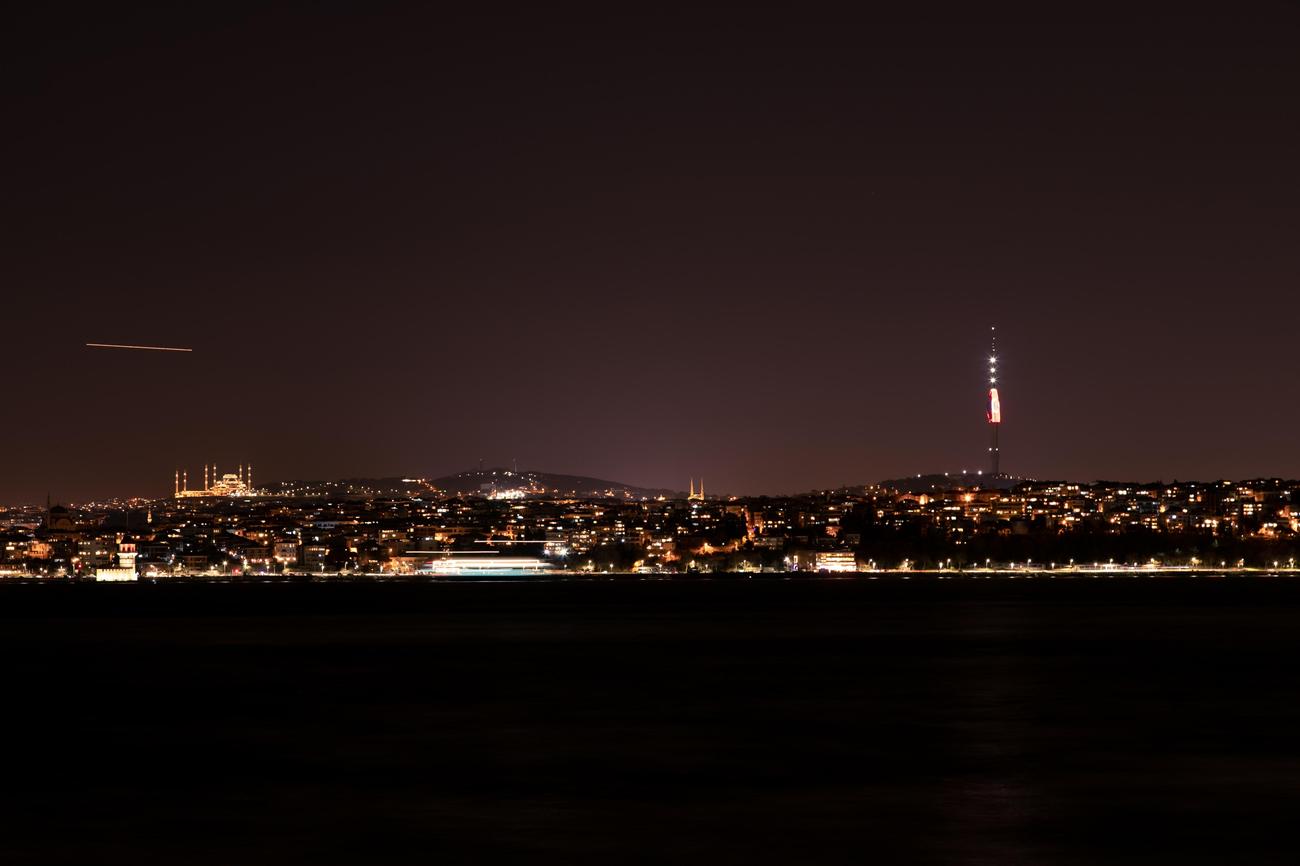Uncovering Istanbul: The Unique Blend of East and West

Step into the vibrant world of Istanbul, a cosmopolitan city like no other. As an experienced travel journalist with a deep passion for unraveling the intricacies of urban landscapes, I am thrilled to introduce you to the unparalleled fusion of East and West that defines this captivating metropolis. With my expertise in capturing the essence of global cities, Istanbul stands out as a shining emblem of cultural diversity and historical richness. In this article, we will delve into what sets Istanbul apart from every other world city, exploring its unique blend of tradition and modernity, and how it effortlessly merges Eastern and Western influences. Get ready for a journey like no other as we uncover the secrets of Istanbul’s extraordinary tapestry.
What makes Istanbul different from every other world city?
Istanbul, the city that bridges two continents, offers a unique blend of East and West that sets it apart from every other world city. From its breathtaking landmarks and rich history to its vibrant cultural scene and diverse cuisine, Istanbul has a character that is truly unmatched.
A City That Straddles Two Continents
Unlike any other city in the world, Istanbul is divided between two continents, with one foot in Europe and the other in Asia. The majestic Bosphorus Strait cuts through the city, serving as a natural boundary between the European and Asian parts of Istanbul. This geographic uniqueness gives Istanbul an air of mystery and intrigue, as it embodies the fusion of cultures and traditions from both sides of the globe.
A Tapestry of History
Steeped in history that dates back to ancient times, Istanbul is a living testament to the empires and civilizations that have left their mark. From the iconic Blue Mosque and the grandeur of Hagia Sophia to the bustling Grand Bazaar, the city’s landmarks are a reflection of its historical significance. Each stone and dome whisper stories of emperors, sultans, and conquerors, creating an atmosphere that is truly captivating.
A Harmonious Blend of Tradition and Modernity
Istanbul’s architecture beautifully combines remnants of the Ottoman Empire with contemporary buildings, creating a mesmerizing juxtaposition of old and new. Mosques adorned with intricate tile work stand side by side with sleek glass skyscrapers, showcasing the city’s ability to seamlessly blend tradition and modernity. This unique aesthetic adds to Istanbul’s allure, making it a visual feast for all who visit.
A Cultural Melting Pot
As a cosmopolitan city, Istanbul serves as a cultural melting pot where East meets West. Its vibrant nightlife, bustling art scene, and diverse culinary offerings reflect the city’s knack for embracing different cultures. From traditional Turkish delights to international cuisines, the flavors of Istanbul tantalize the taste buds and showcase the city’s diverse culinary heritage.
An Invitation to Uncover
What truly sets Istanbul apart is its ability to captivate and surprise visitors at every turn. Every corner of the city holds a secret waiting to be discovered. Whether it’s stumbling upon a hidden gem in the labyrinthine streets of the historic neighborhoods or witnessing the breathtaking sunset over the Bosphorus, Istanbul never fails to leave a lasting impression.
In the words of Orhan Pamuk, the renowned Turkish author, “Istanbul’s fate is my fate.” Exploring Istanbul is embarking on a journey of self-discovery, where history and culture intertwine to create a city that is as charismatic as it is enigmatic. So, what makes Istanbul different from every other world city? It is the undeniable spirit of duality, the harmonious blend of East and West that makes Istanbul a destination unlike any other.
Istanbul, one of the most captivating cities in the world, is full of surprises and hidden gems just waiting to be discovered. From its rich history to its vibrant culture, there are so many fun facts about Istanbul that will leave you eager to explore it further. Did you know that Istanbul is the only city in the world located on two continents? This fascinating tidbit alone is enough to pique anyone’s curiosity. To uncover more intriguing facts about this remarkable city, click here: fun facts about istanbul. Get ready to be amazed by the wonders of Istanbul!
Why Turkey is Transforming Istanbul Into an Island
[youtube v=”F6I7eHVXh2A”]
Istanbul, the largest city in the world with territory on two continents, Europe and Asia, is undergoing a transformation that will turn it into an island. This ambitious project is aimed at addressing the strategic and economic challenges faced by Turkey and unlocking the potential benefits of its geographic location.
Throughout history, Istanbul has played a significant role as the capital city for three great empires – the Romans, the Byzantines, and the Ottomans. It has been the largest city in the world on two separate occasions and continues to be one of the most famous and well-known cities in human history.
Today, Istanbul is home to more than 15 million people, accounting for nearly 1 out of every 5 Turks. The city is a major hub for trade, with its economy larger than the entirety of South Africa. This economic strength is largely rooted in Istanbul’s strategic location and its proximity to the Bosphorus Strait.
The Bosphorus Strait is a narrow water passage that separates Europe from Asia and connects the Black Sea with the Aegean and Mediterranean Seas. It serves as the only possible route for countries like Bulgaria, Romania, Ukraine, Georgia, and Russia to access the Mediterranean and global world oceans, making it crucial for international trade.
The strait is particularly important for Russia, the world’s second-largest exporter of oil, as it relies on the warm and ice-free ports on the Black Sea to ship its oil to the rest of the world. Russian oil tankers heavily rely on the Bosphorus Strait to access the global market.
Moreover, the Danube River, the second longest river in Europe, flows directly into the Black Sea. This river connects important European cities like Vienna, Bratislava, Budapest, and Belgrade. It also serves as a link between Shanghai, the busiest port in Asia, and Rotterdam, Europe’s largest commercial trading hub.
As a result, the Bosphorus Strait has become one of the busiest trade routes globally, surpassing the Suez Canal in commercial traffic. However, Turkey itself does not reap significant economic benefits from this strategic possession. While it has control over the strait, Turkey cannot charge tolls or fees to generate revenue.
To address this issue, Turkey is planning to transform Istanbul into an island by constructing an artificial canal adjacent to the Bosphorus Strait. By doing so, Turkey argues that it can bypass the restrictions imposed by the 1936 Montreal Convention, which prohibits Turkey from charging tolls or fees.
The Istanbul Canal, as it is called, will be situated 30 kilometers west of the Bosphorus on the European side of Turkey. It will span 45 kilometers from end to end, significantly shorter than the Suez Canal. Construction on the canal began in March 2021, and it is expected to be completed by 2023, marking the centennial anniversary of the Turkish Republic.
The Turkish government believes that the Istanbul Canal will alleviate congestion in the Bosphorus Strait, speed up international trade, and divert dangerous cargo away from Istanbul’s city center. Additionally, they anticipate generating significant revenue from tolls and fees, potentially surpassing the earnings of the Suez Canal.
However, critics raise concerns about the feasibility and potential drawbacks of the project. They argue that the construction of the canal will only serve as a means for Turkey to bypass the Montreal Convention, without overturning it. Merchant ships will still have free access to the Bosphorus, raising doubts about the canal’s usage and revenue generation.
Moreover, the canal’s construction will require the displacement of thousands of residents and may cause significant environmental damage. Istanbul’s groundwater and drinking water supply could be contaminated, and a major reservoir serving the city could be destroyed. Critics also point out the potential conflicts of interest, as some of the property along the canal’s route is owned by influential figures, including the son-in-law of President Erdogan.
Despite these concerns, Turkey remains determined to proceed with the Istanbul Canal project, citing its potential benefits for international trade, the local economy, and the utilization of its strategic location. Only time will tell how this ambitious endeavor unfolds and whether it brings about the desired outcomes for Turkey.

FAQ
Question 1: What makes Istanbul unique among world cities?
Answer 1: Istanbul stands out among world cities due to its unique location. It is the only city in the world that straddles two continents, with one part in Asia and the other in Europe. The Bosphorus Strait runs through the city, separating the European and Asian parts, adding to its distinctive character.
Question 2: What are some famous landmarks in Istanbul?
Answer 2: Istanbul is home to several iconic landmarks. Some of the notable ones include the Blue Mosque, known for its stunning architecture and intricate tilework; Hagia Sophia, a magnificent ancient cathedral-turned-mosque-turned-museum that showcases impressive Byzantine and Ottoman influences; and the Grand Bazaar, one of the world’s largest and oldest covered markets offering a captivating shopping experience.
Question 3: What is the historical significance of Istanbul?
Answer 3: Istanbul boasts a rich history dating back to ancient times. It has seen the rise and fall of great empires, including the Byzantine and Ottoman empires. This historical significance is evident in its architecture, with a fusion of ancient ruins, medieval structures, and elegant Ottoman palaces.
Question 4: What is the cultural atmosphere like in Istanbul?
Answer 4: Istanbul is a cosmopolitan city that serves as a cultural hub, blending traditional and modern elements. Its diverse architecture showcases remnants of the Ottoman empire alongside contemporary buildings. The city’s vibrant nightlife and diverse culinary scene further contribute to its cultural allure.
Question 5: Why is Istanbul a popular tourist destination?
Answer 5: Istanbul attracts visitors from around the world due to its unique blend of history, culture, and stunning landmarks. The city offers a wealth of experiences, from exploring ancient sites to immersing in the bustling streets and vibrant markets. Istanbul’s strategic location and the fusion of East and West create an enchanting atmosphere that leaves a lasting impression on travelers.
- Unveiling Bernhard Caesar Einstein’s Scientific Achievements: A Legacy in Engineering - July 15, 2025
- Uncover who is Jerry McSorley: CEO, Family Man, Business Success Story - July 15, 2025
- Discover Bernhard Caesar Einstein’s Scientific Contributions: Unveiling a Legacy Beyond Einstein - July 15, 2025















